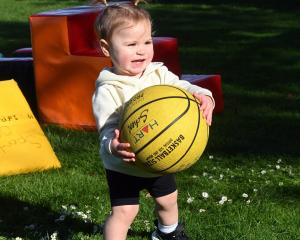Some commentators urge finding the correct "work-life balance", but Prof Hayne said the two could not be kept entirely separate.
They sometimes formed a "blur" and she suggested tertiary staff could find their individual, creative ways to gain the best from both academic and family life.
She believed it was now possible to "have it all"- and that university women "no longer have to make a choice between their work and their family".
The two-day national symposium, for people who had completed an earlier New Zealand Women in Leadership programme, was being held in Dunedin for the first time.
In a keynote address, she emphasised the importance of pioneering women, such as the first Otago woman graduate Caroline Freeman, who graduated in 1885, in helping pave the way for later female scholars at Otago University.
Prof Hayne said she had experienced no career impediments at Otago because she was a woman.
"Otago has been a great place for me to have a gender-blind career."
"The conference theme was "Leadership: Collaboration or Competition?"
Female leaders should be keen to collaborate, but also to be ready to compete if required, she said.
In many matters there was scope for compromise but "when you are right, you really do need to stick to your guns".
When she had been appointed as vice-chancellor, media interviewers had asked her what she thought of having become Otago's first female vice-chancellor. She noted she was also the university's first American vice-chancellor, and a psychologist.
She paid tribute to two US academic mentors, psychologists Carolyn Rovee-Collier and Elizabeth Loftus, who had both contributed to her academic development.












